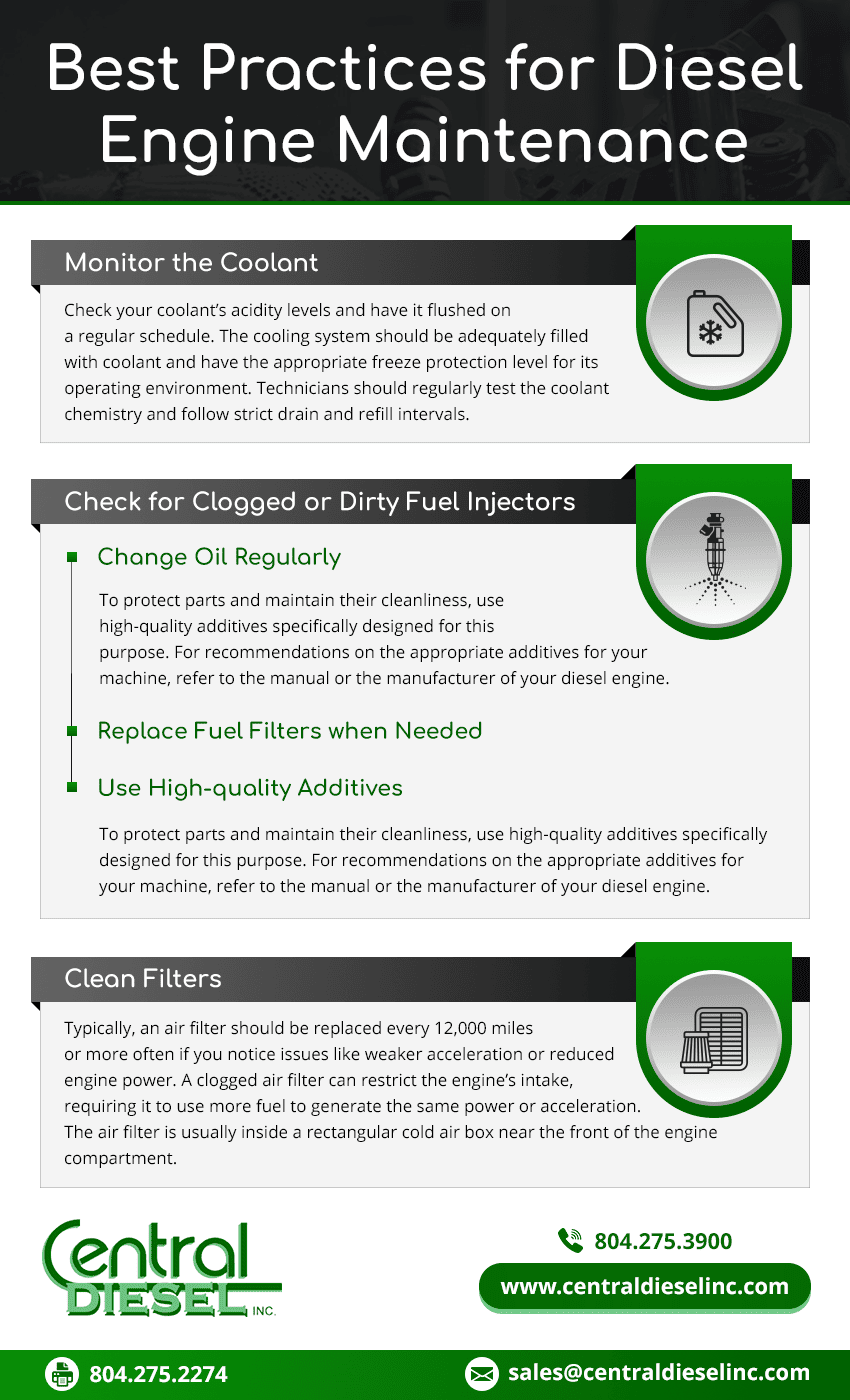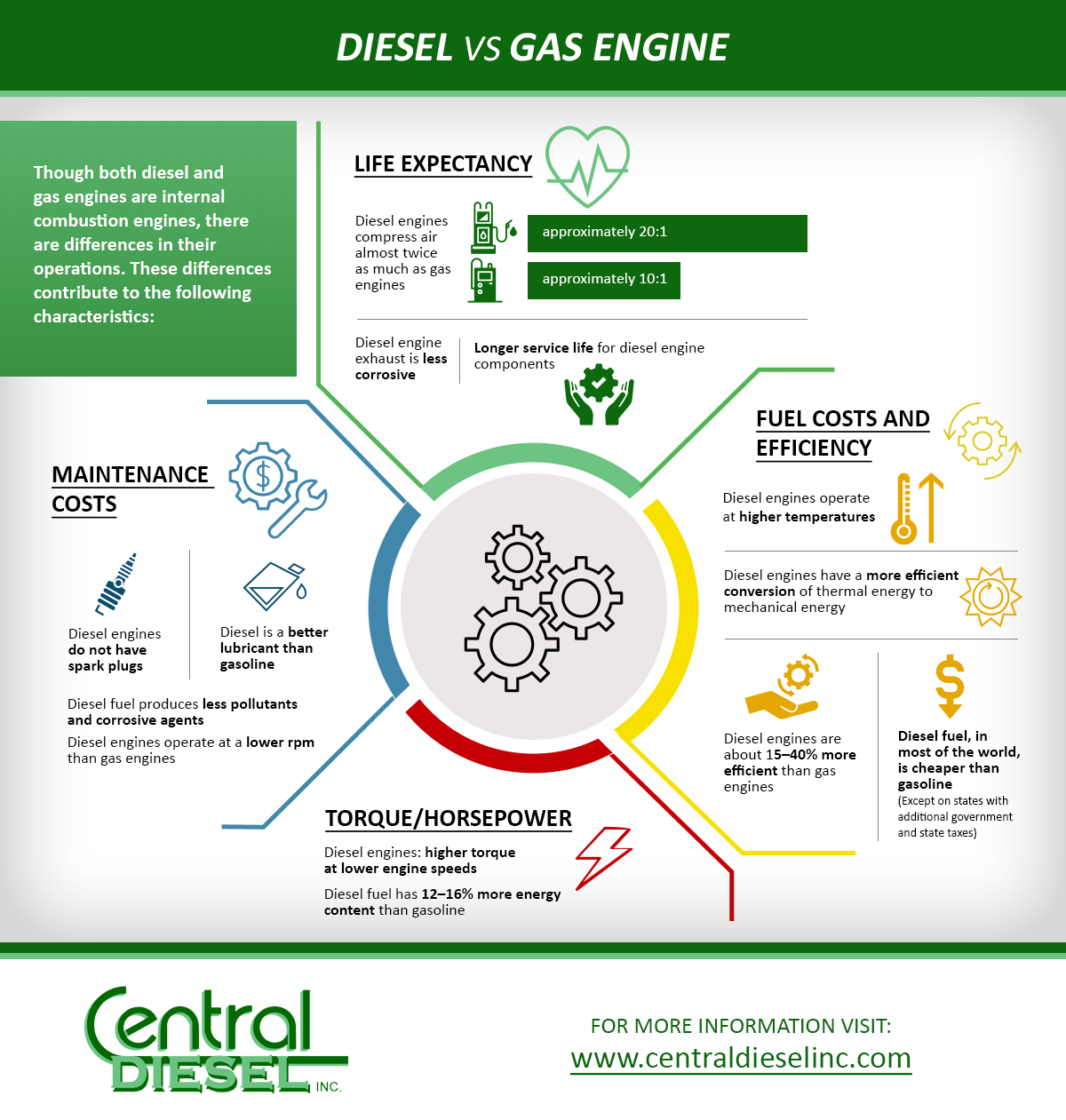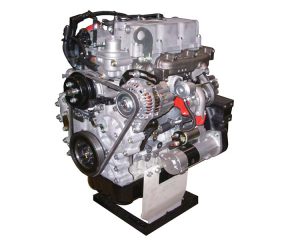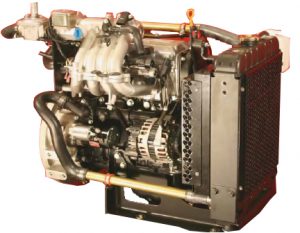How Does a Diesel Turbocharger Work?
Leave a CommentA diesel turbocharger is a device used to increase the power and efficiency of a diesel engine. It compresses the intake air before entering the engine’s combustion chamber. This compressed air allows more fuel to be burned, resulting in increased power output. Additionally, turbocharging improves fuel efficiency by extracting more energy from the fuel-air mixture.
In this article, we will look into the inner workings of diesel turbochargers, exploring their parts and operating principles.
Essential Components of Diesel Turbochargers
The following components work together to harness exhaust energy and increase intake air density, boosting engine power and efficiency in diesel vehicles:
- Turbine housing: This component houses the turbine wheel, spun by the exhaust gases exiting the engine. As the gases pass through the turbine, they drive the turbine wheel, which powers the compressor.
- Compressor housing: This enclosure houses the compressor wheel. The compressor wheel draws in and compresses ambient air, increasing its density before it enters the engine’s intake manifold.
- Turbine and compressor wheels: These wheels are the heart of the turbocharger. The turbine wheel is connected to the exhaust side and spins as exhaust gases flow over it. Simultaneously, the compressor wheel connected to the intake side draws in and compresses air.
- Center housing and bearings: These components support the turbine and compressor wheels, allowing them to spin freely. They also house the bearings that reduce friction and enable smooth rotation.
- Wastegate: In some turbochargers, a wastegate is included to control the exhaust gas flowing through the turbine housing. This helps regulate boost pressure and prevent over-pressurization of the engine.
- Intercooler (optional): In certain diesel turbocharged setups, an intercooler is installed to cool the compressed air before it enters the engine. This increases air density, optimizing combustion and enhancing engine performance.
Operating Principles of a Diesel Turbocharger
Here are the operating principles of a diesel turbocharger that transform the efficiency and performance of diesel engines:
Exhaust Gas Energy Conversion
In the operation of a diesel engine, the combustion process generates high-pressure exhaust gases as a byproduct. These gases contain a significant amount of thermal energy. The turbocharger is designed to capture and convert this energy into useful work for the engine.
Compressor Operation
The turbocharger assembly has two main components: the turbine and the compressor. The turbine is positioned in the path of the exhaust gases, while the compressor is on the intake side of the engine. As the exhaust gases flow over the turbine blades, they cause the turbine wheel to rotate. This rotation spins the compressor wheel, which draws in ambient air and compresses it to a higher pressure.
Increased Air Density
The compressed air exiting the compressor housing has a higher pressure and density than the ambient air. This denser air flows into the engine’s intake manifold. The turbocharger increases the oxygen content per unit volume by compressing the intake air, which is critical for combustion efficiency.
Enhanced Combustion
The denser air delivered by the turbocharger in the engine’s combustion chamber promotes efficient combustion. When compressed air combines with fuel, it produces a more potent fuel-air mixture. This richer mixture creates a more vigorous combustion, releasing more energy every cycle and increasing engine power output.
Engine Efficiency Improvement
Turbochargers improve combustion efficiency, enhancing the engine’s overall performance. The increased power output from the engine allows it to do more work with the same amount of fuel. This translates to improved fuel economy and reduced emissions per unit of power produced, making diesel engines more environmentally friendly and cost-effective.
Choose Central Diesel for Reliable Diesel Solutions
With over five decades of industry experience, Central Diesel is the trusted partner for customers looking to fulfill their diesel engine needs! We offer a comprehensive range of products and services to meet diverse requirements across various sectors. Moreover, we ensure that your diesel engines always operate at peak performance.
Contact us today to learn more about our services! You can also request a quote to get started.









